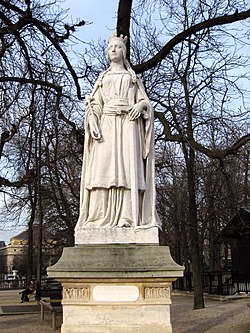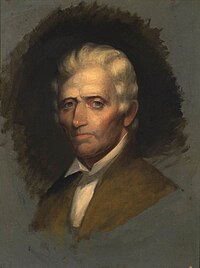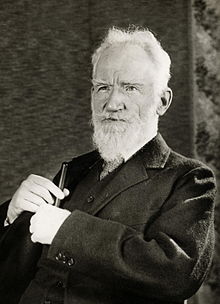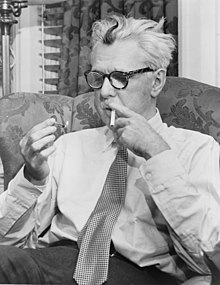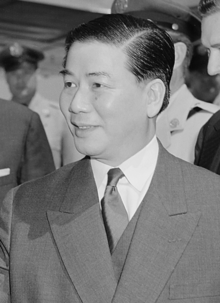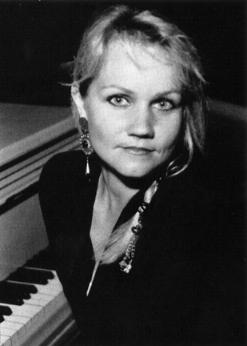November 2 is the 306th day of the year (307th in leap years) in the Gregorian calendar. There are 59 days remaining until the end of the year.
Holidays
- All Souls’ Day (Roman Catholic and Anglican Church), and its related observances:
- Dia de Finados or Dia dos Fiéis Defuntos (Brazil and Portugal)
- Christian feast day:
- Coronation of Haile Selassie (Rastafari movement)
- Day of the Dead, The second day of Day of the Dead or El Dia de los Muertos celebration. (Mexico)
- Earliest day on which Election Day can fall, while November 8 is the latest; celebrated on Tuesday following the first Monday in November. (United States)
- Indian Arrival Day (Mauritius)
- Karatsu Kunchi (Karatsu, Saga)
- Statehood Day (North Dakota and South Dakota)
History
In 619, A qaghan of the Western Turkic Khanate is assassinated in a Chinese palace by Eastern Turkic rivals after the approval of Tang emperor Gaozu.
In 1083, Matilda of Flanders (b. 1031) fell ill during the summer of 1083 and died in November 1083. She was the wife of William the Conqueror and, as such, Queen of England. She bore William nine children, including two kings, William II and Henry I. She was the daughter of Baldwin V, Count of Flanders and Adèle of France, herself daughter of Robert II of France. According to legend, when Duke William II of Normandy (later known as William the Conqueror) sent his representative to ask for Matilda’s hand in marriage, she told the representative that she was far too high-born to consider marrying a bastard. After hearing this response, William rode from Normandy to Bruges, found Matilda on her way to church, dragged her off her horse by her long braids, threw her down in the street in front of her flabbergasted attendants and rode off.
Naturally, Baldwin took offense at this but, before they could draw swords, Matilda settled the matter by refusing to marry anyone but William; even a papal ban by Pope Leo IX at the Council of Reims on the grounds of consanguinity did not dissuade her. William and Matilda were married after a delay in c. 1051-2. A papal dispensation was finally awarded in 1059 by Pope Nicholas II. Lanfranc, at the time prior of Bec Abbey, negotiated the arrangement in Rome and came only after William and Matilda agreed to found two churches as penance.
Matilda was crowned queen on May 11, 1068, in Westminster during the feast of Pentecost, in a ceremony presided over by the archbishop of York. Three new phrases were incorporated to cement the importance of English consorts, stating that the Queen was divinely placed by God, shares in royal power, and blesses her people by her power and virtue
In 1410, The Peace of Bicêtre.
In 1470, Birth of Edward V of England (d. 1483)
In 1734, Birth of Daniel Boone, American explorer (d. 1820)
In 1755, Birth of Marie Antoinette, Austrian wife of Louis XVI of France (d. 1793)
In 1865, Birth of Warren G. Harding, American politician, 29th President of the United States (d. 1923)
In 1868, Time zone: New Zealand officially adopts a standard time to be observed nationally.
In 1882, Oulu, Finland is devastated by the Great Oulu Fire of 1882.
In 1887, Jenny Lind, Swedish soprano and actress (b. 1820) died, aged 67, at Wynd’s Point on 2 November 1887 and was buried in the Great Malvern Cemetery to the music of Chopin’s Funeral March. She bequeathed a considerable part of her wealth to help poor Protestant students in Sweden receive an education. She better known as Jenny Lind, was a Swedish opera singer, often known as the “Swedish Nightingale”. One of the most highly regarded singers of the 19th century, she performed in soprano roles in opera in Sweden and across Europe, and undertook an extraordinarily popular concert tour of America beginning in 1850. She was a member of the Royal Swedish Academy of Music from 1840.
Lind became famous after her performance in Der Freischütz in Sweden in 1838. Within a few years, she had suffered vocal damage, but the singing teacher Manuel García saved her voice. She was in great demand in opera roles throughout Sweden and northern Europe during the 1840s, and was closely associated with Felix Mendelssohn. After two acclaimed seasons in London, she announced her retirement from opera at the age of 29.
In 1850, Lind went to America at the invitation of the showman P. T. Barnum. She gave 93 large-scale concerts for him and then continued to tour under her own management. She earned more than $350,000 from these concerts, donating the proceeds to charities, principally the endowment of free schools in Sweden. With her new husband, Otto Goldschmidt, she returned to Europe in 1852 where she had three children and gave occasional concerts over the next two decades, settling in England in 1855. From 1882, for some years, she was a professor of singing at the Royal College of Music in London.
In 1889, North and South Dakota are admitted as the 39th and 40th U.S. states.
In 1895, The first gasoline-powered race in the United States; first prize is $2,000.
In 1898, Cheerleading is started at the University of Minnesota with Johnny Campbell leading the crowd in cheering on the football team.
In 1899, The Boers begin their 118 day siege of British held Ladysmith during the Second Boer War.
In 1909, Lambda Chi Alpha fraternity is founded at Boston University.
In 1913, Birth of Burt Lancaster, American actor (d. 1994)
In 1914, World War I: The Russian Empire declares war on the Ottoman Empire and the Dardanelles are subsequently closed.
In 1917, The Balfour Declaration proclaims British support for the “establishment in Palestine of a national home for the Jewish people” with the clear understanding “that nothing shall be done which may prejudice the civil and religious rights of existing non-Jewish communities”. The Balfour Declaration (2 November 1917) was a public statement issued by the British government during World War I announcing support for the establishment of a “national home for the Jewish people” in Palestine, then an Ottoman region with a minority Jewishpopulation. It represented the first expression of public support for Zionism by a major political power. The term “national home” had no precedent in international law, and was intentionally vague as to whether a Jewish state was contemplated. The second half of the declaration was added to satisfy opponents, who had claimed that it would otherwise prejudice the position of the local population of Palestine and encourage antisemitism against Jews worldwide. While the declaration called for political rights in Palestine for Jews, rights for the vast majority of the local population, the Palestinian Arabs, were limited to the civil and religious spheres. The declaration greatly increased popular support for Zionism, and led to the creation of Mandatory Palestine, which later became Israel and the Palestinian territories. Historians consider it one of the causes of the ongoing Israeli–Palestinian conflict.
In 1917, The Military Revolutionary Committee of the Petrograd Soviet, in charge of preparation and carrying out the Russian Revolution, holds its first meeting.
In 1920, In the United States, KDKA of Pittsburgh, Pennsylvania starts broadcasting as the first commercial radio station. The first broadcast is the result of the United States presidential election, 1920.
In 1920, Adam Martin Wyant became the first former professional American football player to be elected to the United States Congress.
In 1930, Haile Selassie is crowned emperor of Ethiopia.
In 1936, The Canadian Broadcasting Corporation is established.
In 1936, Italian dictator Benito Mussolini proclaims the Rome-Berlin Axis, establishing the alliance of the Axis Powers.
In 1936, The British Broadcasting Corporation initiates the BBC Television Service, the world’s first regular, “high-definition” (then defined as at least 200 lines) service. Renamed BBC1 in 1964, the channel still runs to this day.

In 1938, Birth of Pat Buchanan, American journalist and politician. He is an American conservative political commentator, author, syndicated columnist, politician and broadcaster. Buchanan was a senior advisor to U.S. Presidents Richard Nixon, Gerald Ford and Ronald Reagan, and was an original host on CNN‘s Crossfire. He sought the Republican presidential nomination in 1992 and 1996. He ran on the Reform Party ticket in the 2000 presidential election.
He co-founded The American Conservative magazine and launched a foundation named The American Cause. He has been published in Human Events, National Review, The Nation, Rolling Stone, VDare and The Jackson Press.org. He was a political commentator on the MSNBC cable network, including the show Morning Joe until February 2012, and now appears on Fox News. Buchanan was a regular on The McLaughlin Group from the 1980s until the show ended. His political positions can generally be described as paleoconservative, and many of his views, particularly his opposition to American imperialism and the managerial state, echo those of the Old Right Republicans of the first half of the 20th century.
In 1940, World War II: First day of Battle of Elaia–Kalamas between the Greeks and the Italians.
In 1947, In California, designer Howard Hughes performs the maiden (and only) flight of the Spruce Goose or H-4 The Hercules; the largest fixed-wing aircraft ever built.
In 1949, The Dutch–Indonesian Round Table Conference ends with the Netherlands agreeing to transfer sovereignty of the Dutch East Indies to the United States of Indonesia.
In 1950, George Bernard Shaw, Irish-English author, playwright, and critic, Nobel Prize laureate (b. 1856) died at the age of 94, of renal failure precipitated by injuries incurred by falling while pruning a tree. His ashes, mixed with those of his wife, Charlotte Payne-Townshend, were scattered along footpaths and around the statue of Saint Joan in their garden.
He was an Irish playwright and a co-founder of the London School of Economics. Although his first profitable writing was music and literary criticism, in which capacity he wrote many highly articulate pieces of journalism, his main talent was for drama, and he wrote more than 60 plays. He was also an essayist, novelist and short story writer. Nearly all his writings address prevailing social problems with a vein of comedy which makes their stark themes more palatable. Issues which engaged Shaw’s attention included education, marriage, religion, government, health care, and class privilege.
He was most angered by what he perceived as the exploitation of the working class. An ardent socialist, Shaw wrote many brochures and speeches for the Fabian Society. He became an accomplished orator in the furtherance of its causes, which included gaining equal rights for men and women, alleviating abuses of the working class, rescinding private ownership of productive land, and promoting healthy lifestyles. For a short time he was active in local politics, serving on the London County Council.
Shaw was noted for expressing his views in uncompromising language, whether on vegetarianism (branding his own pre-vegetarian self a “cannibal“), the development of the human race (his own brand of eugenics was driven by encouragement of miscegenation and marrying across class lines), or on political questions (in spite of his own generally liberal views he was not an uncritical supporter of democracy, and is even recorded as supporting, or at least condoning, the dictators of the 1930s).
He is the only person to have been awarded both a Nobel Prize in Literature (1925) and an Academy Award (1938), for his contributions to literature and for his work on the film Pygmalion (an adaptation of his play of the same name), respectively. Shaw turned down all other awards and honours, including the offer of a knighthood.
In 1953, The Constituent Assembly of Pakistan names the country The Islamic Republic of Pakistan.
In 1957, The Levelland UFO Case in Levelland, Texas, generates national publicity.
In 1959, Quiz show scandals: Twenty One game show contestant Charles Van Doren admits to a Congressional committee that he had been given questions and answers in advance.
In 1959, The first section of the M1 motorway, the first inter-urban motorway in the United Kingdom, is opened between the present junctions 5 and 18, along with the M10 motorway and M45 motorway.
In 1960, Penguin Books is found not guilty of obscenity in the trial R v Penguin Books Ltd., the Lady Chatterley’s Lover case.
In 1961, James Thurber, American author and illustrator (b. 1894) dies. Thurber was stricken with a blood clot on the brain on October 4, 1961, and underwent emergency surgery. The operation was successful, but he died, aged 66, due to complications from pneumonia which set in.
He was an American cartoonist, author, journalist, playwright, and celebrated wit. Thurber was best known for his cartoons and short stories, published mainly in The New Yorker magazine and collected in his numerous books. One of the most popular humorists of his time, Thurber celebrated the comic frustrations and eccentricities of ordinary people. In collaboration with his college friend, Elliott Nugent, he wrote the Broadway comedy, The Male Animal, later adapted into a film, which starred Henry Fonda and Olivia de Havilland.
In 1963, South Vietnamese President Ngô Ðình Diệm is assassinated following a military coup. He was the first president of South Vietnam (1955–1963). In the wake of the French withdrawal from Indochina as a result of the 1954 Geneva Accords, Diệm led the effort to create the Republic of Vietnam. Accruing considerable US support due to his staunch anti-communism, he announced victory after a fraudulent 1955 plebiscite in which he won 600,000 votes from an electorate of 450,000 and began building a right-wing dictatorship in South Vietnam.
A Roman Catholic, Diệm’s policies toward the Republic’s Montagnard natives and its Buddhist majority were met with protests, culminating in the self-immolation of Buddhist monk Thích Quảng Đức in 1963. Amid religious protests, Diệm lost the backing of his US patrons and was assassinated, along with his brother, Ngô Đình Nhu by Nguyễn Văn Nhung, the aide of ARVN General Dương Văn Minh on 2 November 1963, during a coup d’état that deposed his government.
In 1964, King Saud of Saudi Arabia is deposed by a family coup, and replaced by his half-brother King Faisal.
In 1965, Norman Morrison, a 31-year-old Quaker, sets himself on fire in front of the river entrance to the Pentagon to protest the use of napalm in the Vietnam war.
In 1966, The Cuban Adjustment Act comes into force, allowing 123,000 Cubans the opportunity to apply for permanent residence in the United States.
In 1967, Vietnam War: US President Lyndon B. Johnson and “The Wise Men” conclude that the American people should be given more optimistic reports on the progress of the war.
In 1973, The Communist Party of India (Marxist) and the Communist Party of India form a ‘United Front’ in the state of Tripura.
In 1974, 78 die when the Time Go-Go Club in Seoul, South Korea burns down. Six of the victims jumped to their deaths from the seventh floor after a club official barred the doors after the fire started.
In 1974, I enter China for the first and last time.
In 1977, South Ockendon Windmill, a smock mill at South Ockendon, Essex, England collapsed.
In 1982, Channel 4 is launched in the United Kingdom.
In 1983, U.S. President Ronald Reagan signs a bill creating Martin Luther King, Jr. Day.
In 1984, Capital punishment: Velma Barfield becomes the first woman executed in the United States since 1962.
In 1988, The Morris worm, the first internet-distributed computer worm to gain significant mainstream media attention, is launched from MIT.
In 1990, British Satellite Broadcasting and Sky Television plc merge to form BSkyB as a result of massive losses.
In 1992, Hal Roach, American actor, director, producer, and screenwriter (b. 1892) died in his home in Bel Air, California, from pneumonia on November 2, 1992, two months short of his 101st birthday. He was an American film and television producer, director, and actor from the 1910s to the 1990s, best known today for producing the Laurel and Hardy and Our Gang (later known as The Little Rascals) film comedy series. He was married twice, and had six children, eight grandchildren and a number of great-grandchildren. Roach outlived three of his children by more than twenty years: Hal Jr. (died in 1972), Margaret (died in 1964) and Elizabeth (died in 1946). Roach is buried in Woodlawn Cemetery in Elmira, New York, where he grew up. Roach outlived many of the Our Gang children who starred in his pictures.
In 1996, Eva Cassidy, American singer and guitarist (b. 1963) dies. In 1993, Cassidy had a malignant mole removed from her back. Three years later, during a promotioal event for the Live at Blues Alley album in July 1996, Cassidy noticed an ache in her hips, which she attributed to stiffness from painting murals while perched atop a stepladder. The pain persisted and a few weeks later, X-rays revealed that the melanoma had spread to her lungs and bones. Her doctors estimated she had three to five months to live. Cassidy opted for aggressive treatment, but her health deteriorated rapidly. In the early fall, at a benefit concert for her at the Bayou, she made her final public appearance, closing the set with “What a Wonderful World” in front of an audience of family, friends, and fans. Additional chemotherapy was ineffective and Cassidy died on November 2, 1996 at her family’s home in Bowie, Maryland
She was an American vocalist and guitarist known for her interpretations of jazz, blues, folk, gospel, country, rock and pop classics. In 1992, she released her first album, The Other Side, a set of duets with go-go musician Chuck Brown, followed by the 1996 live solo album entitled Live at Blues Alley. Although she had been honored by the Washington Area Music Association, she was virtually unknown outside her native Washington DC, when she died of melanoma in 1996.
Four years later, Cassidy’s music was brought to the attention of British audiences when her versions of “Fields of Gold” and “Over the Rainbow” were played by Mike Harding and Terry Wogan on BBC Radio 2. Following the overwhelming response, a camcorder recording of “Over the Rainbow”, taken at Blues Alley in Washington by her friend Bryan McCulley, was shown on BBC Two‘s Top of the Pops 2. Shortly afterwards, the compilation album Songbird climbed to the top of the UK Albums Charts, almost three years after its initial release. The chart success in the United Kingdom and Ireland led to increased recognition worldwide; her posthumously released recordings, including three UK number 1 records, have sold more than ten million copies. Her music has also charted top 10 positions in Australia, Germany, Sweden, Norway and Switzerland.
In 2000, The first resident crew to the ISS docked with their Soyuz TM-31 spacecraft.
In 2007, 50,000–100,000 people demonstrate against the Georgian government in Tbilisi.
In 2007, Five students at Oswego High School in Chicago, Ill., died in what investigators say was an alcohol-related crash. Several students said they wanted to discourage fellow students from drinking and driving during homecoming weekend, and wore shirts to school emblazoned “Class .08” the Friday before — a double meaning of the class of 2008 and a reminder that .08 percent is the legal alcohol limit for drivers. School officials told the students to remove their shirts; all did but one. “I decided I wasn’t going to back down,” said Katie Kusnierz, 17, since their classmates’ deaths “really impacted us.” Kusnierz was thus suspended — on the grounds that the shirt’s message “could be” interpreted as promoting drinking. (Chicago Tribune) …Of course, the school administrators “could be” idiots.
In 2014, A suicide attack killed 60 at Wagah.
In 2016, The Chicago Cubs defeat the Cleveland Indians in the World Series, ending the longest Major League Baseball championship drought at 108 years.

